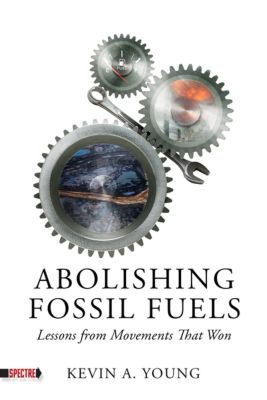We have the resources for a green transition, but how can we neutralise the influence of Exxon and Shell? Abolishing Fossil Fuels argues that the climate movement has started to turn the tide against fossil fuels, just too gradually. The movement's partial victories show us how the industry can be further undermined and eventually abolished. Activists have been most successful when they've targeted the industry's enablers: the banks, insurers, and big investors that finance its operations, the companies and universities that purchase fossil fuels, and the regulators and judges who make life-and-death rulings about pipelines, power plants, and drilling sites. This approach has jeopardised investor confidence in fossil fuels, leading the industry to lash out in increasingly desperate ways. The fossil fuel industry's financial and legal enablers are also its Achilles heel. The most powerful movements in US history succeeded in similar ways. The book also includes an in-depth analysis of four classic victories: the abolition of slavery, battles for workers' rights in the 1930s, Black freedom struggles of the 1950s and 1960s, and the fight for clean air. Those movements inflicted costs on economic elites through strikes, boycotts, and other mass disruption. They forced some sectors of the ruling class to confront others, which paved the way for victory. Electing and pressuring politicians was rarely the movements' primary focus. Rather, gains in the electoral and legislative realms were usually the byproducts of great upsurges in the fields, factories, and streets. Those historic movements show that it's very possible to defeat capitalist sectors that may seem invulnerable. They also show us how it can be done. They offer lessons for building a multiracial, working-class climate movement that can win a global green transition that's both rapid and equitable.

